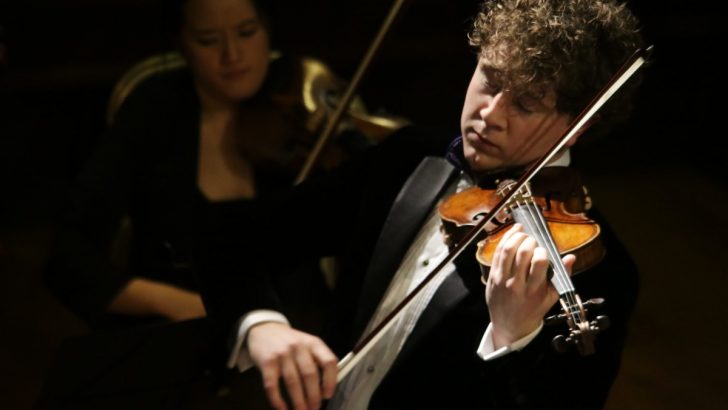Pat O’Kelly
‘Treat’, meaning something that gives great pleasure, seems to be out of fashion but I am reminded of it recently in three programmes at the National Concert Hall, which I consider merit the accolade.
The first comes from the period-instrument Orchestra of the Age of Enlightenment (OAE) conducted by Budapest-born pianist András Schiff; the second through the RTÉ NSO directed by Novosibirsk-born violinist Maxim Vengerov and finally the visit of the Royal Philharmonic Orchestra (RPO) under Tel Aviv-born violinist Pinchas Zukerman.
London-domiciled Schiff’s romantic programme is devoted to Schumann and Brahms with the latter’s massive 1st Pano Concerto standing alone after the interval. Schumann’s 4th Symphony and the novelty of his Konzertstück for four horns are heard earlier. This brings most of OAE’s horn section out front and reveals the quartet’s sonorous balance to particular effect.
The Concerto finds Schiff in wonderful form. Travelling with his own Blüthner piano, the ornate instrument is lovely to see but even more appealing to hear, once its autumnal tenor settles on the ear. It gives Brahms’s mellowness extra depth but also provides the necessary brightness for his glistening and commanding treble. Schiff’s directions to the orchestra are minimal but the cohesion between him and the OAE mean riveting music making.
The first half of Vengerov’s event is devoted to Bach – the Double Violin Concerto, with the maestro joining our own Patrick Rafter; the solo A minor Concerto spotlighting Vengerov alone while the Oboe and Violin Concerto has NSO’s Matthew Manning tootling superbly as the Russian’s harmonious partner.
Directing the NSO with a judicious nod now and then, there is homogeneous rapport between the two violinists with Vengerov never trying to outshine his younger companion. One feels from the outset here is genuine musical camaraderie.
Brilliance
Kilkenny-born Rafter, by the way, is on the threshold of a brilliant international career, if he has not crossed the bar already. Hailed as “belonging among the greatest violinists”, he followed his time at the RIAM by moving to London’s Royal Academy and then, at Vengerov’s invitation, coming under his tutelage. Rafter plays an 1840 Parisian Vuillaume while Vengerov’s Stradivarius dates back to 1727.
Listening to the mellifluous Matthew Manning in the other double concerto I think again, “how lucky we are to have an artist of this calibre in our own orchestra”. His excellently controlled phrasing is a joy while seamless interaction between him and Vengerov is equally refined. The NSO, reduced to baroque forces, offers unfailingly buoyant support in each concerto.
The RPO’s principal guest conductor Pinchas Zukerman opens his programme with Vaughan Williams’s moving Tallis Fantasia where the orchestra’s antiphonal string choirs are plaintive and elegiac. But there is, too, full-bodied richness in their burnished climaxes.
Playing his 1742 Guarnerius del Gesù in Mozart’s 5th Violin Concerto, New York-based Zukerman’s smoothly unforced tone is matched by the RPO’s effortless responses. The central ‘operatic aria’ movement is positively graceful while the concluding Rondeau has its own elegance even when ruffled by the throbbing rhythms of the Turkish section that gives the concerto its nickname. Memorable ‘treats’ all round.


 Patrick Rafter
Patrick Rafter 